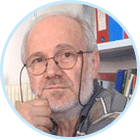


Speakers attending
Seasoned, top-flight healthcare professionals
of global repute will be talking about this food
specially designed for human babies: human milk.
With simultaneous interpreting.
Read on to find out about their careers,
the themes and summaries of their conferences.

Karleen Gribble is a Professor and Research worker at the University of Western Sydney, Australia. She teaches trainee nurses and mid-wives.
Her research has focussed mainly on breastfeeding among adopting mothers, full-term breastfeeding, the non-nutritive aspects of breastfeeding, breastfeeding and infantile protection, mother-to-mother sharing of human milk, and care models for traumatised children.
Karleen Gribble has given many talks and written many books on these subjects.
She works proactively in the feeding of new-borns in emergency situations and compliance with rules governing the commercialisation of formula (WHO code).
She is also an active member of an Australian breastfeeding association and breastfeeding counsellor.
"When giving breast milk
is a matter of emergency"
Helping infants in emergency situations is a great challenge.
Formula for new-borns is frequently donated and distributed in these situations, with an ensuing increase in morbidity and mortality given the corresponding decrease in breastfeeding.
This type of distribution is not the best option and does not help non-breastfed new-borns to survive, since the other resources necessary for the preparation of formula are rarely supplied.
Social workers have a responsibility to protect and ensure compliance with human rights. The Convention on the Rights of the Child provides the main guidelines to help NGOs and social workers involved in infantile protection. The Convention especially supports the argument that children have the right to be breastfed. This clearly means that people and authorities in charge of protecting children are responsible for ensuring their actions will support rather than compromise breastfeeding.
In her talk, Karleen Gribble will apply her analysis of breastfeeding to underprivileged population groups in France.
Seasoned, top-flight healthcare professionals of global repute will be talking about this food specially designed for human babies: human milk.
With simultaneous interpreting

"Establishing lactation
when mother and baby are separated"

"Duration of exclusive breastfeeding
and introduction of supplements,
what proof do we have?"

"Epigenetics and breastfeeding.
Potential long-term impact of
breastfeeding"
"Natural, toxic, or ... what?
Breastfeeding and use of marijuana"
For the 10th edition of International Breastfeeding Day, we are honoured to be welcoming Lydia de Raad, who will be sponsoring the event.
COORDINATION IBD 2016,
Françoise-Marie Noguès
francoise-marie.nogues@lllfrance.org